AFP
Incense drifted across a classroom as Cambodian election workers sought spiritual blessings for their makeshift polling station, ahead of a vote that leader Hun Sen needs no divine intervention to win.
Sunday’s election has been widely condemned as a sham by international observers, with any real opposition eliminated, allowing Hun Sen to prepare to hand the reins to his son Hun Manet after four decades of iron-fisted rule.
At the Hun Sen Bun Rany Wat Phnom High School on the eve of the poll, workers moved battered desks, set up voting booths, and unfolded large steel ballot boxes.
In one room, red incense sticks protruded from a bunch of bananas, smouldering on a desk.
The smoke wafted through the classroom in central Phnom Penh, passing over portraits of Cambodia’s royal family and an image of the historic ruins of Angkor Wat tacked to the walls.
“We ask the spirits for a smooth election tomorrow and future happiness,” Touch Nara told AFP as she sorted through candidate lists.
It certainly looks like a smooth ride for Hun Sen’s Cambodian People’s Party (CPP), with the sole credible alternative, the Candlelight Party, barred from running.
It means the CPP is voters’ only real option, despite the presence of 17 small and poorly funded parties — their chances of scoring any of the 125 seats in the lower house are vanishingly small.
The 70-year-old leader has made it clear he will step down and pass the baton to his son, 45-year-old Hun Manet — perhaps as soon as next month — though he has said he will still wield power from behind the scenes.
Web developer Seila Lyhour told AFP he was unsure about Hun Manet succeeding.
“For me, I would say that he will change direction a little bit from his father. Even though they are related some people have different opinions,” he said.
“We cannot say for sure if it will go the same way,” said the 23-year-old, who had been selected as an election worker and was being paid 245,700 riel ($59) for the day.
Outside the school, traffic sped past as many city residents returned to their home provinces for the poll.
About 9.7 million people are registered to vote.
“I will vote tomorrow,” a 73-year-old Cambodian told AFP, as behind him workers prepared a polling station by the Mekong river.
“I want the country to be developed like Western countries, but we have to go step by step,” he cautioned.
The father of four, who declined to give his name, said he had voted in every election since the end of the Khmer Rouge, who killed some 1.7 million before they were toppled by the Vietnamese and Hun Sen was installed as leader in the 1980s.
“This is a very important point: It was so hard, we had nothing to eat, we could not speak and people died in front of us,” he said.
“When living in hardship, if someone gives you rice, you never forget.”
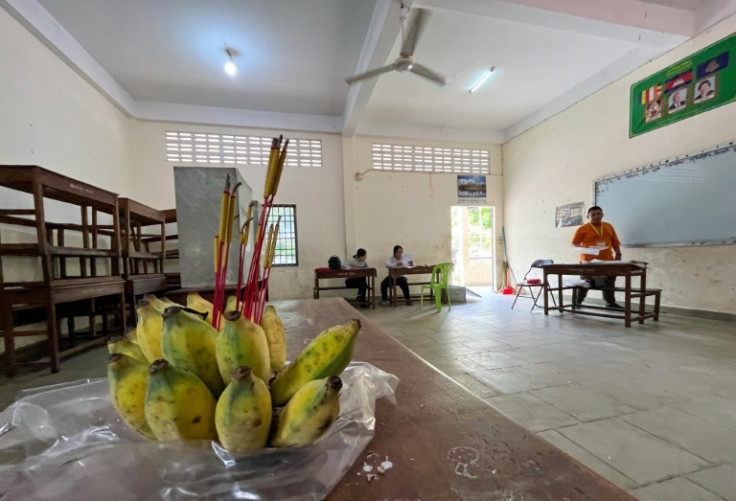
AFP
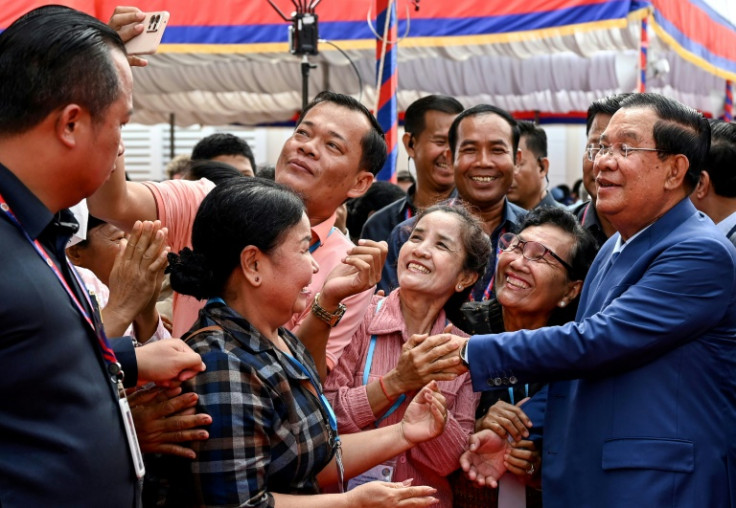
AFP

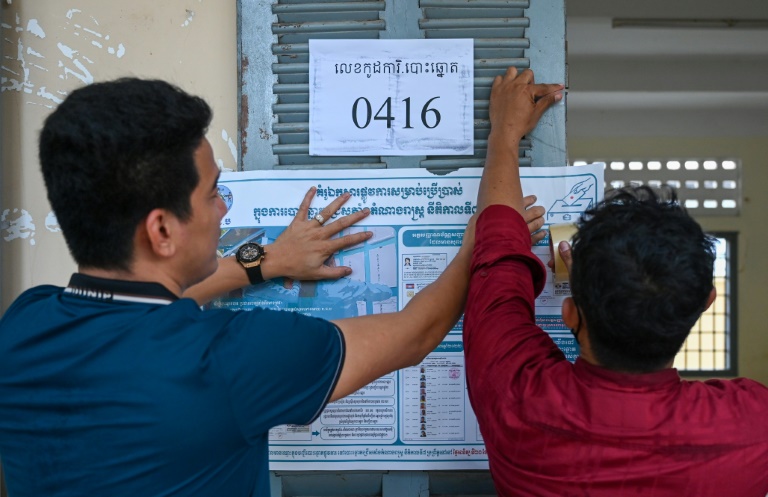
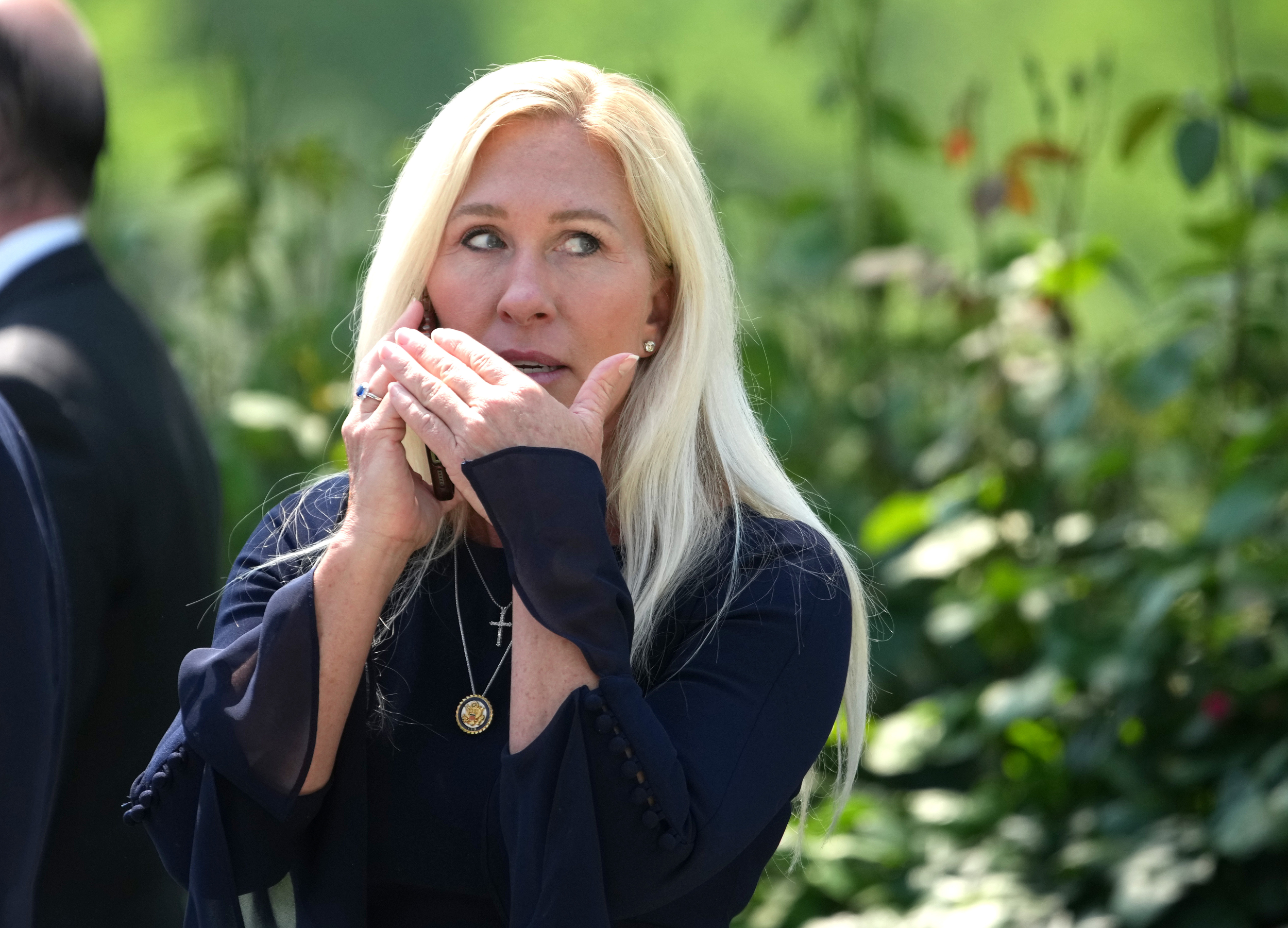
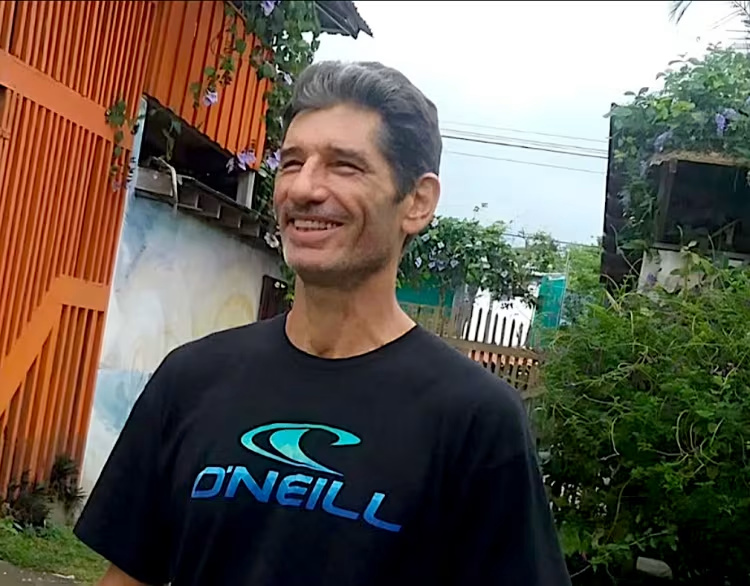


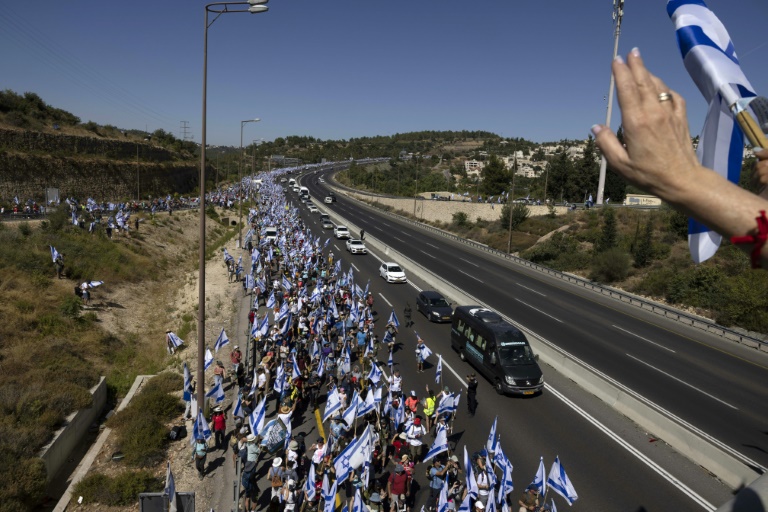
![Megan Fox Gets Slammed into Barricade after Boyfriend Machine Gun Kelly Gets into Brawl with Fan at Orange County Fair [WATCH] Megan Fox Gets Slammed into Barricade after Boyfriend Machine Gun Kelly Gets into Brawl with Fan at Orange County Fair [WATCH]](https://data.ibtimes.sg/en/full/68943/machine-gun-kelly.jpg)